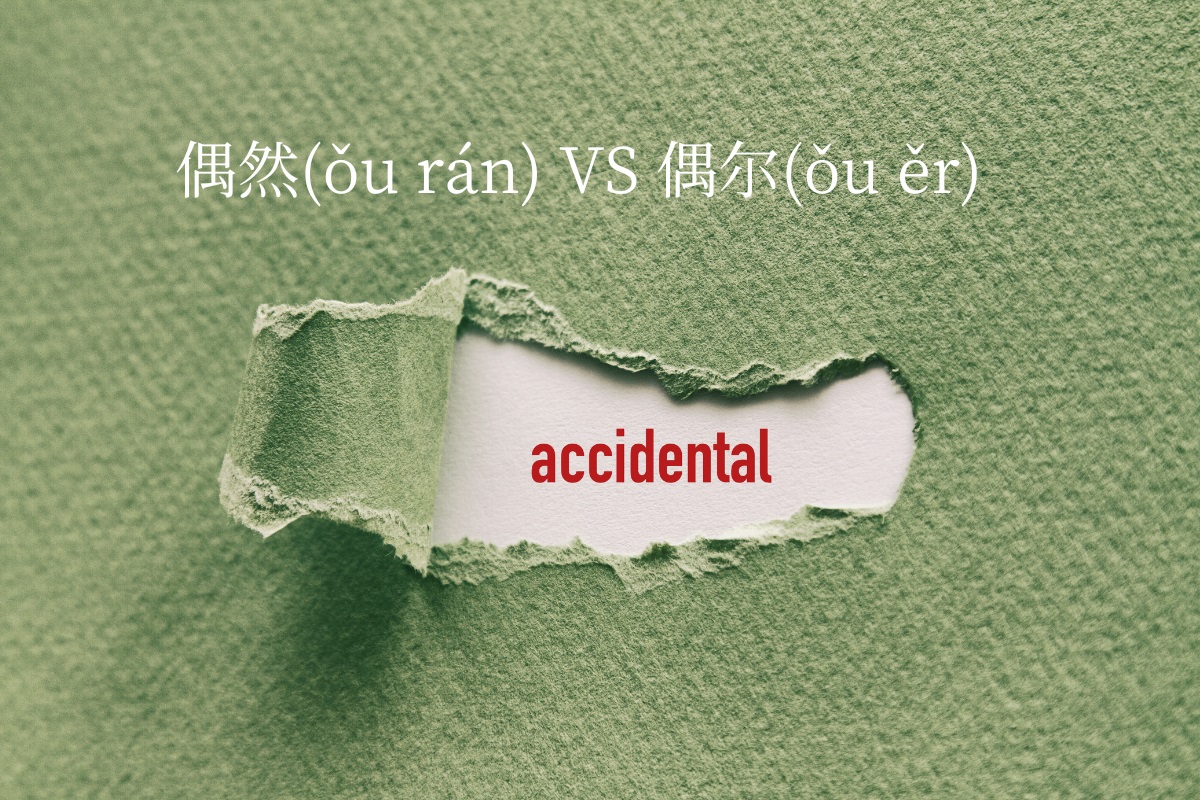HSK Words: 偶然 (ǒu rán) VS 偶尔 (ǒu ěr)
In Chinese language learning, 偶然 (ǒu rán) and 偶尔 (ǒu ěr) are two words that are related to the frequency of occurrence, their usage differs slightly. In this article, we will distinguish between these two words by analyzing their meanings and usage.

偶然 (ǒu rán) typically refers to a happening that is unexpected and not planned. It emphasizes the random or unexpected nature of the event or situation.
Examples:
- By chance, I ran into an old friend.
偶然的一次机会,我遇到了一个老朋友。
ǒu rán de yī cì jī huì , wǒ yù dào le yí gè lǎo péng yǒu。 - I stumbled upon this treasure in my old neighborhood.
我在老家偶然发现了这个宝藏。
wǒ zài lǎo jiā ǒu rán fā xiàn le zhè gè bǎo zàng。 - He stumbled upon a secret message.
他偶然听到了一个秘密消息。
tā ǒu rán tīng dào le yí gè mì mì xiāo xī。
偶尔 (ǒu ěr) typically refers to a happening that occurs irregularly or infrequently. It emphasizes the infrequency or irregularity of the event or situation.
Examples:
- I go to the coffee shop once in a while.
我偶尔会去咖啡店坐坐。
wǒ ǒu ěr huì qù kāi fēn diàn zuò zuò。 - He occasionally forgets to turn off the lights.
他偶尔会忘记关灯。
tā ǒu ěr huì wàng jì guān dēng。 - I occasionally think about when I was a kid.
我偶尔会想起小时候的事情。
wǒ ǒu ěr huì xiǎng qǐ xiǎo shí hòu de shì qíng。
By understanding the differences in meaning and usage, we can better distinguish between these two similar HSK words and use them appropriately in our Chinese language communication.
Quiz: Please consider whether to use 偶然 (ǒu rán) or 偶尔 (ǒu ěr) in the following sentences.
- 多数演员都会____念错台词。
duō shù yǎn yuán dōu huì ____ niàn cuò tái cí 。 - 我们下班后____聚会。
wǒ men xià bān hòu ____ jù huì 。 - 他们的相遇纯属____。
tā men de xiāng yù chún shǔ ____ 。
Answers:
- 偶尔 (ǒu ěr)
- 偶尔 (ǒu ěr)
- 偶然 (ǒu rán)